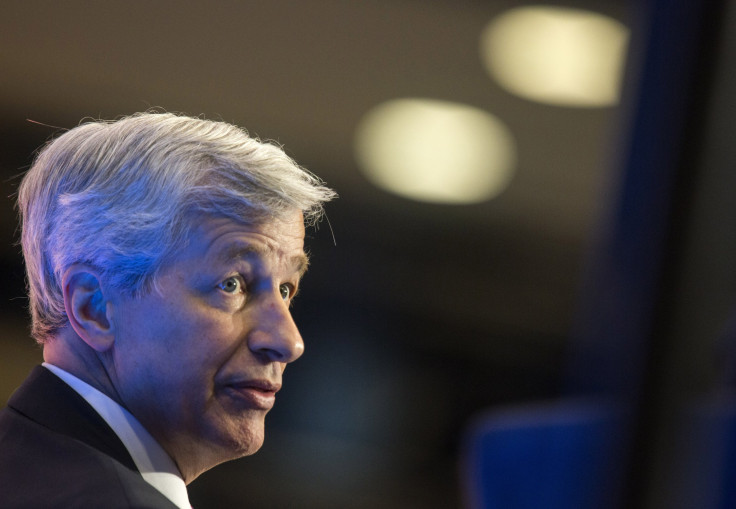A Jamie Dimon Manifesto: Bad Public Policy More Dangerous Than Credit Or Market Risks, JPMorgan CEO Writes

Bad public policy poses a greater threat to the global economy than some major financial risks do, JPMorgan Chase CEO Jamie Dimon said in a letter in the company’s annual report.
“Bad public policy, and I’m not looking at this in a partisan way, creates risk for the economies of the world and the living standards of the people on this planet — and, therefore, for the future of JPMorgan Chase — more so than credit or market risks,” he wrote in a prologue that in some sections took on the tones of a manifesto.
Dimon indicated he was concerned about the long-term future of the U.S., writing, “We have spoken many times about the extraordinarily positive and resilient American economy.” But now, he contended, “We have serious issues that we need to address — even the United States does not have a divine right to success.”
Among those issues needing attention are “long-term fiscal and tax issues” tied to healthcare, Social Security and a poorly designed tax system, as well as education, immigration and “good, long-term infrastructure plans,” Dimon wrote.
The problem of poor public policy was dire enough for Dimon to predict that in another decade, while the U.S. may still be able to provide for its citizens, the erosion of benefits would lead to “intergenerational warfare, and scapegoating will make for very difficult and bad politics.”
In other words, observers shaking their heads over the divisive campaign mounted by U.S. presidential candidate Donald Trump haven’t seen anything yet.
Dimon cited historical or international examples of bad public policy ranging from Argentina, East Germany and Venezuela to Cuba and the pariah North Korea. On the domestic front, he highlighted Detroit — “a train wreck in slow motion for 20 years” — as well as Fannie Mae and Freddie Mac, which he excoriated as “the largest, most leveraged and most speculative vehicles that the world had ever seen.”
In his letter, Dimon called for sweeping solutions to the sweeping problems he laid out. “We need a proper public policy response to technology, trade and globalization,” he wrote.
Although Dimon did much to spotlight the flaws of current policies, he offered little in the way of specifics to remedy them. Instead, he touted the JPMorgan Chase Institute as the bank’s way of “trying to contribute to the debate on public policy” by supporting “sounder economic and public policy through better facts, timely data and thoughtful analysis.”
Dimon called on everybody in the U.S. to “face these problems,” closing by urging people to collaborate, compromise, listen to each other and “analyze what is working and what is not working, and then figure out — together — how we can make it better.”
© Copyright IBTimes 2024. All rights reserved.





















